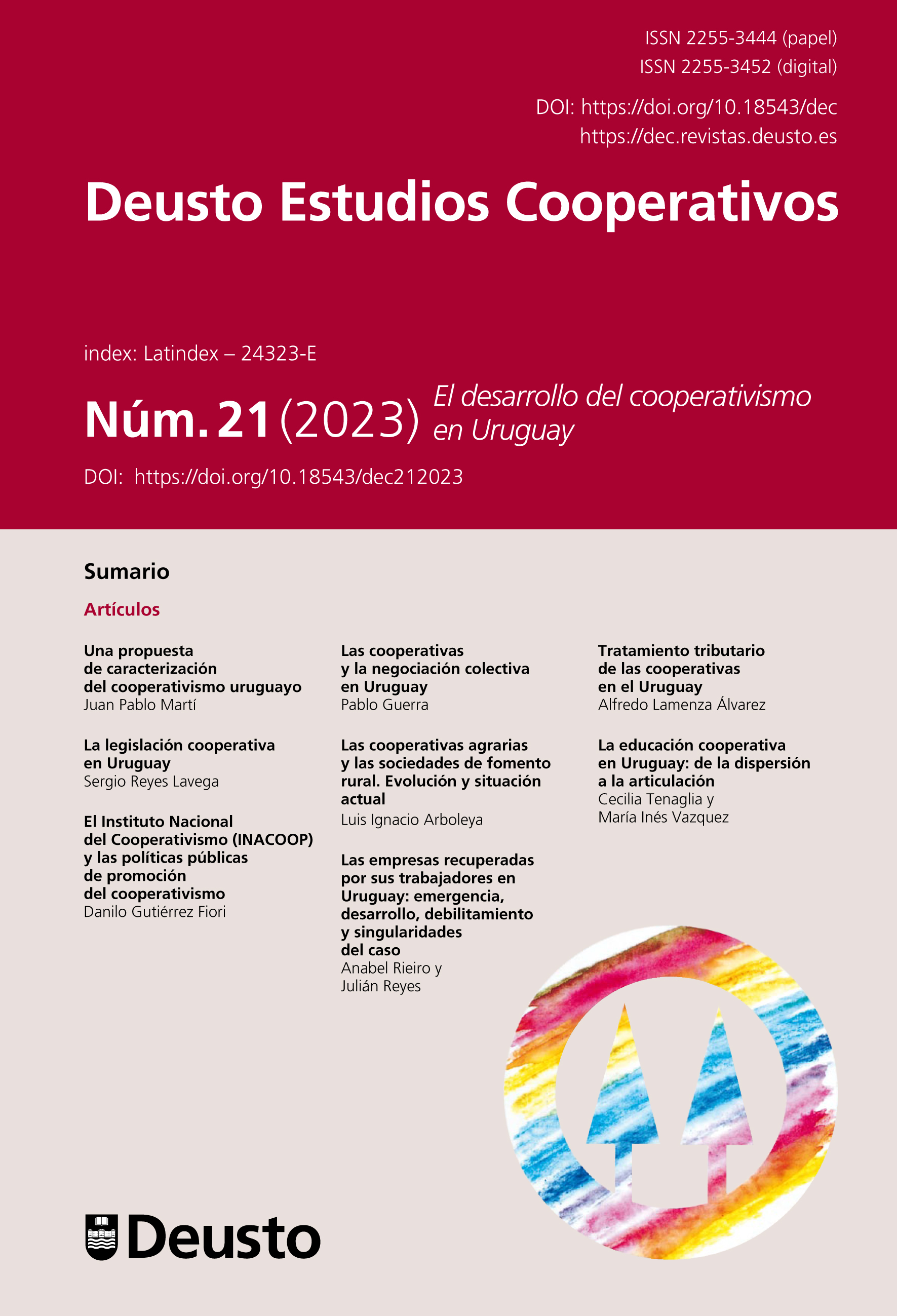El Instituto Nacional del Cooperativismo (INACOOP) y las políticas públicas de promoción del cooperativismo
Abstract
This article takes a brief tour of the history of public policy and institutionality prior to the appearance of INACOOP with in order to place the Institute on the national stage and to be able to appreciate the dimension of the changes made. Then the internal conditions that favored its creation and the inspiring ideas that sustain the new institutionality. Its legal figure and its governance system are analyzed with emphasis on the co-creation of public policy and the coordinating role that the institution has with state entities and the cooperative movement and the economy Social. Policies developed in permanent connection with others are reviewed actors. The legislative evolution for which new laws were attributed to it is reported. tools and extension to a broader universe of recipients. Finally, the continuity of the great public policies is highlighted, which transcend the span of each management period.
Received: 03 November 2022
Accepted: 12 January 2023
Downloads
The authors, by submitting their manuscripts to the Deusto Estudios Cooperativos (DEC), accept the conditions listed below on copyright and undertake to comply with them. They do not sign any document of assignment of rights to the Publisher.
1. Authorship: The author must be the sole creator of the work or legally acting on behalf of and with the full agreement of all the authors.
2. Copyright and Code of conduct:
a) Authors warrant that their work is original; has not been previously copyrighted or published in any form; is not under consideration for publication elsewhere; its submission and publication do not violate the Ethical Guidelines of DEC and any codes (of conduct), laws or any rights of any third party; and no publication payment by the Publisher (University of Deusto) is required.
b) Authors grant to the Publisher the worldwide, sub-licensable, and royalty-free right to exploit the work in all forms and media of expression, now known or developed in the future, for educational and scholarly purposes.
c) Authors retain the right to present, display, distribute, develop, and republish their work to progress their scientific career provided the original publication source (DEC) is properly acknowledged.
d) Authors warrant that no permissions or licences of any kind have been granted or will be granted that might infringe the rights granted to the Publisher.


3.jpg)
3.jpg)







